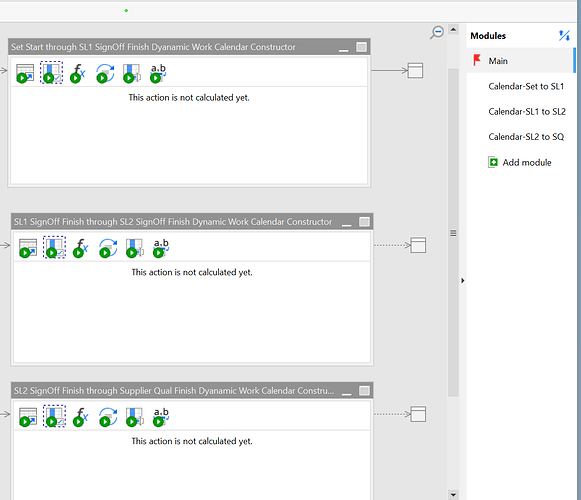I have a question regarding how a module call works under the hood if multiple parallel tables are calling the same module.
I had an iteration of an Easymorph project where I had a parent table that was derived into three child tables to isolate a distinct window of time for three separate phases or work tracked on the parent record. The module the job was calling creates a workday calendar for the range of the dates. When the same module was being called, I experienced errors. I also tried putting a dependency on them so each would run one at a time but I would get an error on the final table when it would call the module for some reason.
How is the priority determined when multiple tables have an action to call a module at the same time?
I have instead pivoted to having three separate versions of the module, one dedicated for each phase of work. This has resolved my issue but I feel like I might not be structuring my job optimally because I am copying the module's logic and creating the parameters individually inside each module.
Has anyone had this kind of workflow before? And if so, how do you structure your calls most efficiently?
Best-
